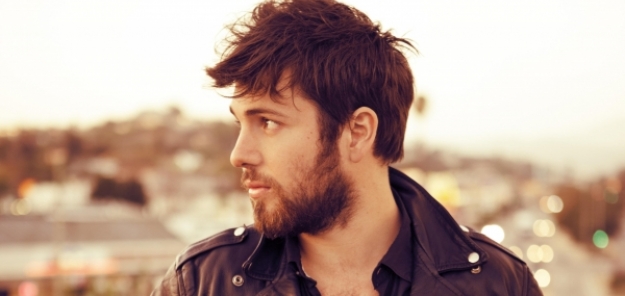After four months in the United States, Oh Mercy are back on home soil with a new album, Deep Heat. This album sees the quartet moving out of the sun- and moon-lit music rooms of their ARIA-nominated Great Barrier Grief and down a dark and groove-infused road populated with strange characters in strange tales.
“I wanted it to be different,” says singer-guitarist and principle songwriter Alexander Gow. “I purposely wanted to throw a curve ball at everyone who’d thought they’d worked me out.” He’s intent on defying definition, and with the album swinging from flute-solo pop to brooding reggae, all underpinned with a rolling groove, he’s succeeding. “I didn’t want to make the same record twice, so [the groove] is the foundation of this record. I always knew I was going to subtract any rhythm playing from the record – no one chugging along on the acoustic guitar playing the chords – it’s simple music, with the bass and the drums in the limelight.”
The band’s four months in the States – two on the road and two recording in Portland – have given Gow a taste of the coveted American music scene. “It’s still baby steps there. Americans are very positive about everything, so they’ll slap you on the back and tell you that you’re the best thing they’ve ever heard in their entire life, and then forget your name the next day.”
That being said, as with many bands with global aspirations, America is still the place to be for Gow and co. “In America, purely because of the population, you can make a living out of being a medium-sized alternative band, whereas in Australia there’s only so many places you can play, so many times a year. The idea of getting over to America is something that we’re interested in and hopefully we can build up some kind of support over there.”
Weeks on the road saw them striking up an admiration for local band Friends. “We happened to be in similar states and in similar cities at the same time, and they were great, I really liked their sound. I really admired how sparse their music was, just bass and drums and vocals basically, which is what I was getting excited about in our music. So it was great to see that someone else was successfully executing that idea.”
As for his other inspirations during the writing and recording of Deep Heat, Gow mentions not only the R&B that clearly has its influence on the bass pulse throughline, but Jamaican dub and dancehall artist Tapper Zukie’s album Man Ah Warrior, the Brazilian artist Jorge Ben, The Clash and the glam rock likes of Bowie, T-Rex and Roxy Music. “With all those artists, the words were really important, and that’s the kind of pop music that I really enjoy listening to: the ones where the song’s crafted and the lyrics aren’t just throwaway.”
Aside from the groove focus of Deep Heat, the lyrics are the most striking departure from their earlier work: no longer the standard singer-songwriter fare of autobiographical stream-of-consciousness, but a multitude of characters, each inhabiting their own vaguely spooky story. Gow drew inspiration for this shift in perspective both from Paul Kelly’s memoir How to Make Gravy and the stories of the ancient Greek and Roman poets; their mythologies, with the duality of their heroes, provide a magnetic undercurrent, drawing the tracks together. “A lot of religions have the evil guy, the devil, but in ancient Roman and Greek texts there is no such figure. All the gods had their evil and sinister sides, so lots of the stories are sinister, and I thought that after the romance of Great Barrier Grief it was time to have a bit of fun. As much as the lyrics are sinister, they’re very much in a tongue-in-cheek way.”
It works. Combined with the slightly camp, ’80s-disco vibe humming through the album, each story takes on a playful aspect. You can feel Gow’s joy in flexing his songwriting muscles afresh. As he moves into musical storytelling, Gow is following a tradition of Australian songwriting – he mentions not only Paul Kelly, but The Church, and Dave McComb of The Triffids, all inductees into the ARIA Hall of Fame. After his experiences overseas, what does he think of the ARIA awards, on return to his homeland? “I think that music is something that should be celebrated and acknowledged as something that’s important. Any celebration of music gets a thumbs-up from me, and the ARIAs is the most popularly recognised one. I’m glad that it exists.”
Deep Heat is out now through EMI
Sam George-Allen
ENDS




